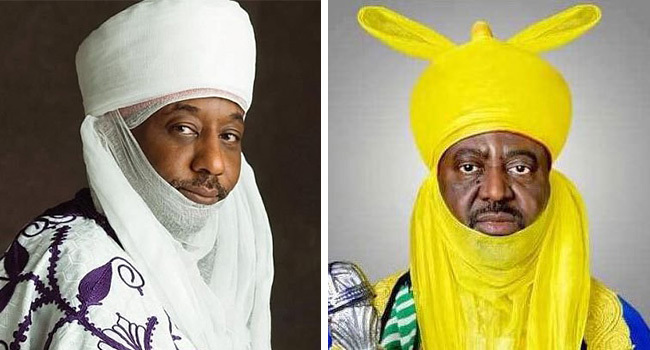In a dramatic turn of events, both the Federal High Court and the Kano State High Court have issued opposing interim injunctions regarding the Kano Emirate, escalating tensions and uncertainty in the state.
The Federal High Court in Kano, presided over by Justice S. A. Amobeda, issued an order for the eviction of Emir Muhammadu Sanusi II from the Kofar Kudu Palace, reinforcing the authority of the 15th Emir of Kano, Aminu Ado Bayero.
“An order of interim injunction restraining the respondents from inviting, arresting, detaining, threatening, intimidating, harassing the Applicant, or infringing on his rights is hereby granted,” stated Justice Amobeda.
He added, “This order ensures that Emir Aminu Bayero enjoys all rights and privileges accrued to him by virtue of his position.”
On the other hand, the Kano State High Court, under the jurisdiction of Hon. Justice Amina Adamu Aliyu, issued an injunction to protect Muhammadu Sunusi and other key figures from potential harassment by state authorities. This order prevents any interference with the Emir’s autonomy and the seizure of key symbols of his authority, such as the twin spear, the Royal Hat of Dabo, and the Ostrich-feathered shoes.
Justice Aliyu emphasised, “An order of interim injunction is granted restraining the Respondents from harassing or intimidating the Applicants or confiscating any symbols of the Emir’s authority.”
She further added, “The respondents are ordered to maintain the status quo pending the hearing and determination of the motion on notice.”
These conflicting orders have led to significant confusion regarding the rightful authority and protection of the emirs in Kano. The State High Court’s case is set for further hearing on June 13, while the Federal High Court has adjourned its case to June 4.
The judiciary’s role in upholding the rights of traditional institutions amidst contemporary challenges has never been more critical. As both courts prepare for their respective hearings, the people of Kano await clarity on the matter.
Impact on traditional institutions
Experts believe the legal tussle underscores the delicate balance between traditional institutions and modern governance. The courts’ involvement highlights the complexities in managing historical and cultural legacies within the framework of contemporary legal and administrative systems.
A legal analyst Nura Muhammad Adam said, “These orders reflect the intricate and often contentious relationship between different layers of the judiciary and traditional authority structures in Nigeria.”
For a constitutional lawyer Salisu Umar: “It’s imperative that the judiciary ensures a fair and just process to uphold the dignity and rights of all parties involved.”
As the situation unfolds, the resolution of this legal conflict will be closely watched, not just in Kano, but across Nigeria, where traditional and modern governance often intersect.
The Kano Emirate’s future now hangs in the balance, with both courts set to make further determinations in the coming weeks. The outcomes of these hearings will significantly impact the leadership and governance within one of Nigeria’s most prominent traditional institutions.


